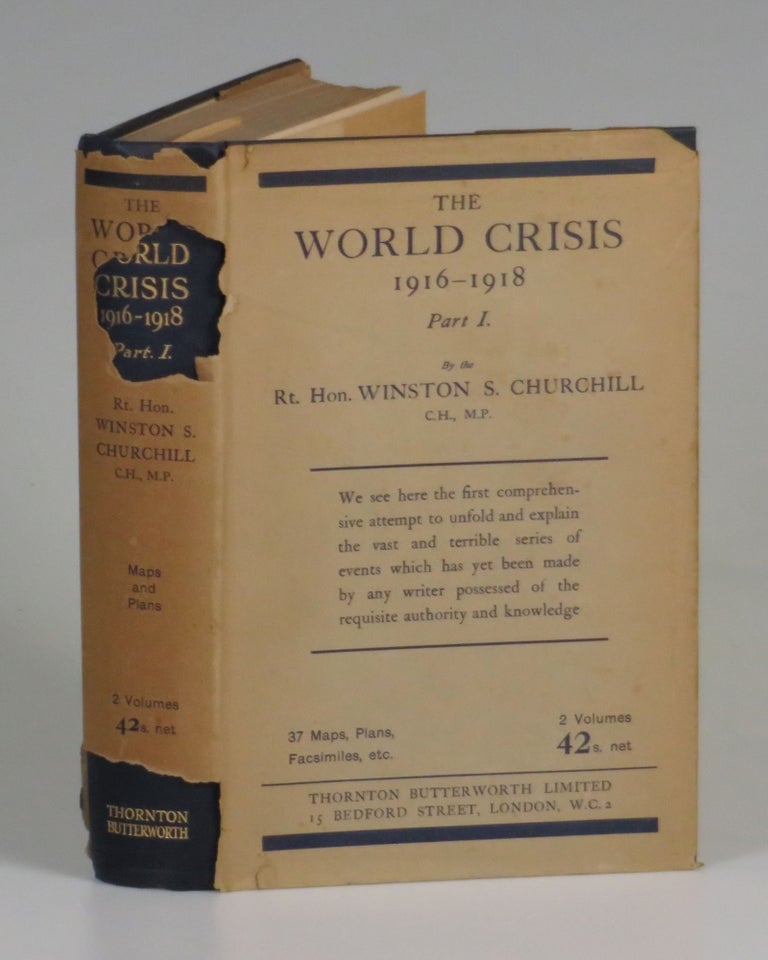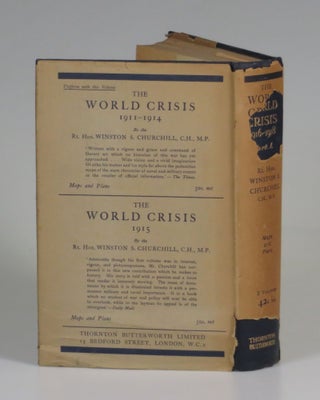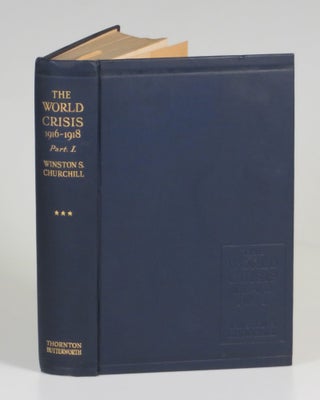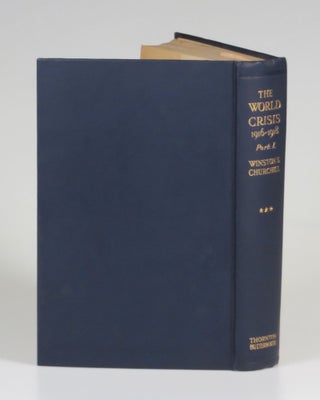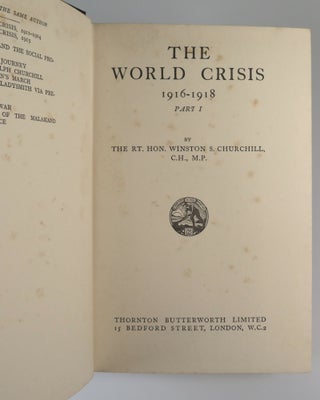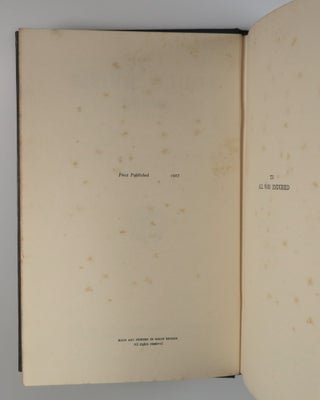The World Crisis: 1916-1918, Part I
London: Thornton Butterworth Limited, 1927. First edition. Hardcover. This is the British first edition, first printing, of the third volume of Winston Churchill's monumental history of The First World War, elusive thus in the original dust jacket. A quarter of a century before the Second World War endowed him with lasting fame, Winston Churchill played a uniquely critical, controversial, and varied role in the “War to end all wars”. Then, being Churchill, he wrote about it. The World Crisis was originally published in six volumes between 1923 and 1931, with the first four volumes spanning the war years 1911-1918 and the final two volumes covering the postwar years 1918-1928 (The Aftermath) and the Eastern theatre (The Eastern Front). The third and fourth volumes, covering the years 1916-1918, were issued as “Part I” and “Part II” respectively. The events of the 1916-1918 volumes, of which this is the first, include Churchill's time at the Front, his return to the Cabinet, and Armistice Day, marking the formal end of hostilities.
The British edition of The World Crisis is aesthetically commanding, its large volumes with shoulder notes summarizing the subject of each page. Unfortunately, the smooth navy cloth of the British first editions proved quite susceptible to wear and blistering, and the contents prone to spotting and toning.
Jacketed copies of any World Crisis first editions are elusive. The 1916-1918 volumes present a special problem, as the paper used for the jackets proved particularly brittle, leading the surviving jackets to commonly split and fragment. This copy is no exception, with significant spine losses, including a shallow strip loss at the spine head, a 1.75 inch (4.5 cm) loss at the spine heel, and an irregular, 1.5 x 2 inch (3.8 x 5.1 cm) loss just above the author’s printed name, consuming the lower portion of the printed title. Nonetheless of note, this jacket is otherwise intact, with no separations at the hinges or flap folds. Moreover, it is clean and bright, with minimal soiling and toning. The jacket is protected beneath a clear, removable, archival cover. The volume beneath approaches near fine condition. The navy cloth binding is square, tight, immaculately clean and beautifully bright with sharp corners and vivid spine gilt. The contents retain a crisp, unread feel. We find no previous ownership marks. Differential toning to the endpapers corresponding to dust jacket flaps confirms what the binding already testifies – that this copy has spent life jacketed. Spotting is primarily confined to the prelims and page edges. Of note, there is transfer browning to pages 134-35 from a lengthy 27 November 1928 The Times obituary of Admiral Scheer, who commanded German naval forces at the Battle of Jutland.
In October 1911, aged 36, Winston Churchill was appointed First Lord of the Admiralty. He entered the post with the brief to change war strategy and ensure the readiness of the world’s most powerful navy. He did both. Nonetheless, when Churchill advocated successfully for a naval campaign in the Dardanelles that ultimately proved disastrous, a convergence of factors sealed his political fate. Churchill was scapegoated and forced to resign, leaving the Admiralty in May 1915. Years later, Churchill’s wife, Clementine, recalled to Churchill’s official biographer “I thought he would never get over the Dardanelles; I thought he would die of grief.” (Gilbert, Vol. III, p.473)
By November, Churchill resigned even his nominal Cabinet posts to spend the rest of his political exile as a lieutenant colonel leading a battalion in the trenches at the Front. Before war's end, Churchill was exonerated by the Dardanelles Commission and rejoined the Government, foreshadowing the political isolation and restoration he would experience two decades later leading up to the Second World War. Despite Churchill's political recovery, the stigma of the Dardanelles lingered. Hence Churchill had more than just literary and financial compulsion to write his history.
Reference: Cohen A69.2(III-1).a, Woods/ICS A31(aa), Langworth p.103. Item #007017
Price: $450.00

